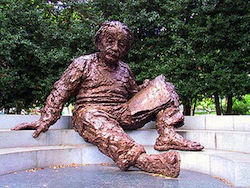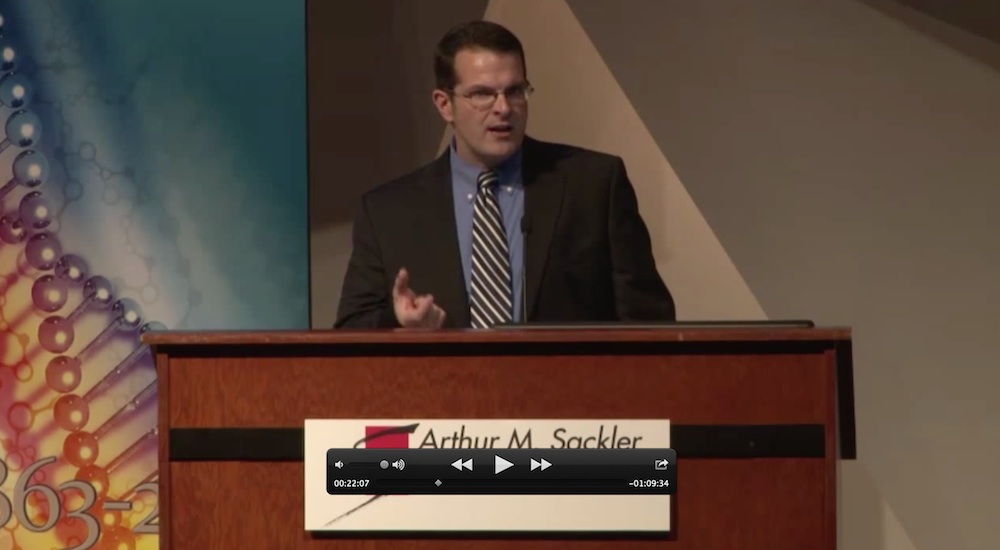Rob Kling Center for Social Informatics Fellowship
May 12, 2014 #research
The Rob Kling Center for Social Informatics has awarded me a Research Fellows Grant for the academic year 2014-2015. This grant will be used to fund research on my global environmental history of computing.
Computer Security and the Sociology of Risk
March 21, 2014 #research
At the heart of the discipline of computer security is the problem of risk: how to analyze and quantify risks that are for the most part invisible, intangible, and not immediately life-threatening; how to communicate risk to computer users, software developers, and policy-makers; and how to balance the costs associated with alleviating risk against other considerations such as ease-of-use, access, accessibility, and profitability.
Although there is a large technical literature on risk in computer security, the principle focus of this literature is on the psychology of individual risk evaluation or on techniques for communicating risk to the public. But there is a large literature coming out of the history of science and technology that deals with the broader construction of risk as a social and historical phenomenon.
As part of the forthcoming workshop on Computer Security History hosted by the Charles Babbage Center, I am developing a paper that situates the computer security in the larger context of what Anthony Giddens famously called “manufactured risk.” The goal of this project is to mobilize the social and cultural history of “computer hacking” and “cybercrime” (focused primarily on the period in the early- to mid-1980s when these phenomena for the first time received widespread media exposure) to inform contemporary strategies for engaging with risk in the context of cybersecurity.
The paper is called From Whiz Kids to Cybercriminals: Emerging Narratives of Risk in Computer Security
New appointment in the History & Philosophy of Science
February 20, 2014 #teaching #research
I am very pleased to announce that I have been appointed an Adjunct Associate Professor in the Department of History and Philosophy of Science. I am thrilled to be part of this lively and accomplished group of scholars!
Introducing The Information Society
December 06, 2013 #teaching
New Course We are often told that we are living in an “Information Society,” and indeed, this is a truth that seems self-evident: communications and information technologies increasingly pervade our homes, our workplaces, our schools, even our own bodies. But what exactly do we mean when we talk about the “Information Society”? If we are living in an Information Society, when did it come into being? What developments — social, economic, political, or technological — made it possible? How does it differ from earlier eras? And finally, and most significantly: what does it all mean?

For the Spring 2014 semester, I am introducing a new course: I222: The Information Society. This course was specifically designed to provide students from a wide variety of humanistic or social scientific disciplines the tools that they need to make sense of the relationship between social and technological change. I222 fulfills the Social and Historical Studies requirements of the Indiana University General Education Requirement.
This course will explore the ways in Western, industrialized societies, over the course of the previous two centuries, came to see information as a crucial commercial, scientific, organizational, political, and commercial asset. Although at the center of our story will be the development of new information technologies — from printing press to telephone to computer to Internet — our focus will not be on machines, but on people, and on the ways in which average individuals contributed to, made sense of, and come to terms with, the many social, technological, and political developments that have shaped the contours of our modern Information Society. Our goal is to use these historical perspectives to inform our discussions about issues of contemporary concern about information technology.
You can find more information about the course at i222info.org.
2013 Fall Conferences & Talks
November 05, 2013 #media
It has been a busy month of conferences and speaking engagements.
The Commission for the History and Philosophy of Computing hosted the second in a series of HAPOC conferences in Paris this year. This was an extraordinarily full and productive conference, with speakers and participants from all over Europe, the UK, and the United States. My contribution was a talk on “the multiple meanings of flowcharts.”
The Society for the History of Technology conference in Portland, Maine, featured many papers in computing related issues. The Special Interest Group on Computing and Information Science (SIGCIS) hosted a day of talks devoted entirely to the history of computing. My SHOT talk was devoted to exploring what I am calling “the environmental history of computing.”
Finally, I attended for the first time the annual conference of the Association for Internet Researchers in Denver, Colorado. Our panel was organized around the idea of revisiting some of the canonical works in our respective disciplines (history, anthropology, communications) in light of changes in information technology. I spoke about the classic Latour/Woolgar ethnography of science Laboratory Life and asked, in reference to the study of contemporary, computer-centric scientific practices, What Would Bruno Do?.
Computing at the National Academy of Sciences
August 18, 2013 #media

This week the National Academy of Sciences is celebrating its 150th anniversary with a Sackler Colloquium called “Celebrating Service to the Nation.” Among other things, they are hosting a series of speakers and panels discussing various aspects of NAS history.
At 1:20 PM EST on Friday, October 18, I will be talking about the history of computing at the National Academies. The talk will be streamed live.
I will also be moderating a panel discussion that includes a cast of computer science all-stars: David Farber, the “grandfather of the Internet”; Robert Kahn, the co-inventor of TCP/IP and one of the “fathers of the Internet”; and Janet Abbate, the noted historian of the Internet.
Update: The videos of the Sackler Colloquium talks can now be found on Youtube.

